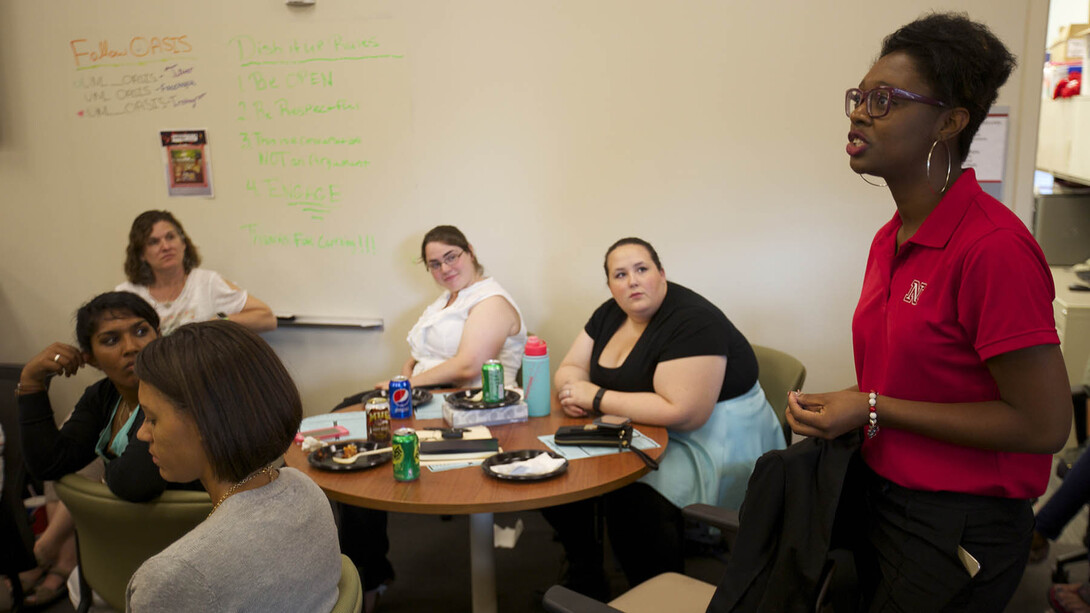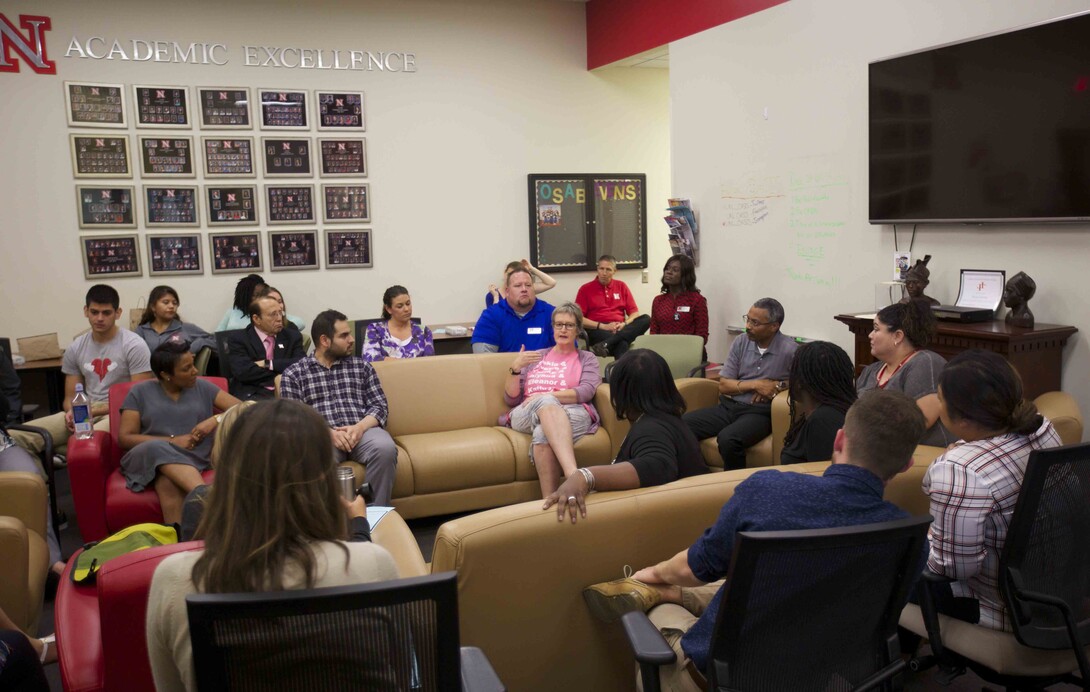
It was standing-room only inside the student lounge, but no one was taking a turn to speak.
“The silence,” John Goldrich said, “indicates how hard it is to talk about this. But please share, because we need to hear each other and know each others’ perspectives.”
Goldrich, a mental health practitioner with the University of Nebraska-Lincoln’s Counseling and Psychological Services, and fellow CAPS psychologist Belinda Hinojos led a July 15 discussion in the Office of Academic Success and Intercultural Services student lounge of the Jackie Gaughan Multicultural Center about recent acts of deadly violence around the country, including the police-shooting deaths of two black men and the killing of five police officers in Dallas.
After a minute of silence, Kevin Reese, who recently began a position with OASIS as a program coordinator for NU Connections, said he was more shocked at his lack of surprise than the actual events that unfolded across the United States the first week of July.
“I was watching the video of Alton Sterling (one of the black men), and I felt a numbness,” Reese, who is black, said. “And it shouldn’t be anything we’re getting used to.
“I also felt the most sadness when I watched his son speaking and I heard and saw some of the reactions. We can go from happiness to a hashtag in a matter of a few hours. Where is the compassion for those people?”
Soon, many in the audience – made up of more than 60 students, faculty and staff and an officer from the Lincoln Police Department were sharing their own stories. The conversation was part of “Dish It Up,” a weekly OASIS and CAPS program designed to provide safe space to discuss current topics on campus and beyond.
In the latest session, they opened a dialogue about combating racism, as well as helping all students, faculty and staff feel safe on campus and in the community.
Lincoln police officer Erin Spilker, a 14-year veteran of the department, spoke about the spectrum of situations and reactions of people she has dealt with and the split-second decisions that police officers have to make. She said as a police officer, she has been dismayed at the recent events.
“Every day I put this uniform on because I want to do good,” Spilker said.
Spilker discussed police multicultural training, best practices for anyone who gets pulled over in a traffic stop, and her worries about her own decisions every day. She said the current climate has put officers on edge, and that officers have no idea what kind of situation they’re approaching at any given time.
“That’s the hardest part,” she said. “We have to come at everybody so differently, whereas before I probably would have just approached you and said, ‘Hey, what’s going on? What’s new,’ but now I have to wonder what kind of interaction is this going to be and how are we going to handle this? And that’s no good for talking and opening communication.”
Reese said that “because of things that have happened recently and because of the things we’ve been through in our lives, the nervous energy officers may have when they’re approaching a car, we have that same issue – that same nervousness – and it doesn’t make it any better for any one of us,” he said. “And seeing all that’s happened in the last three or four years is making us more nervous.”
Organizers said they were pleased with attendance and engagement with the latest Dish It Up session, and look forward to continuing the discussion in the future. Hinojos said students can anonymously suggest topics at the sessions, which are each Tuesday, from noon to 1 p.m. in the student lounge.
Students who may wish to speak to a counselor in the wake of the recent events can contact CAPS at 402-472-7450; faculty and staff may contact the Employee Assistance Program, or EAP, at 402-472-3107.








